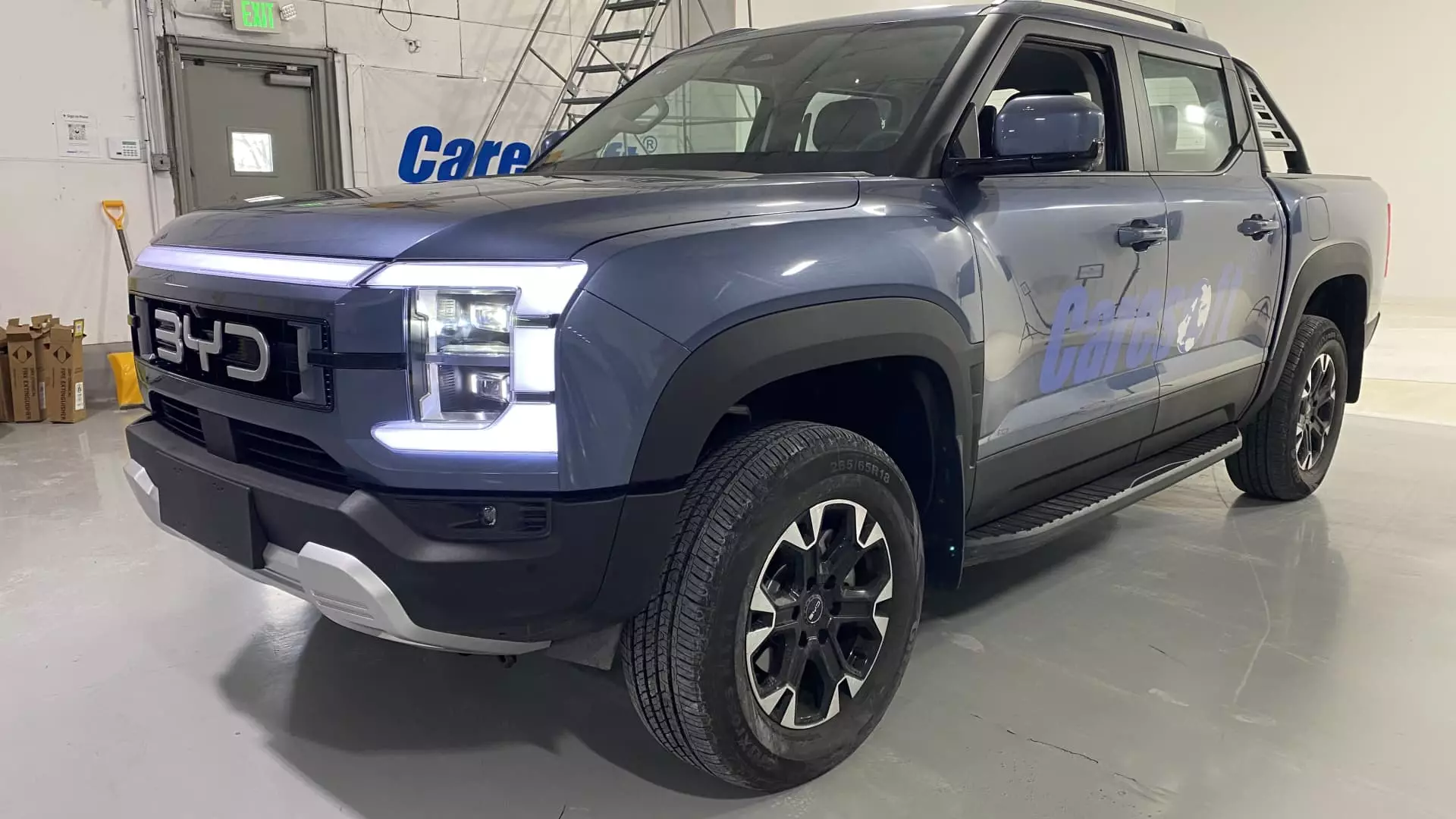The automotive landscape is experiencing a notable transformation as Chinese automaker BYD Auto makes headway into the highly competitive pickup truck market with its new offering, the BYD Shark. This newcomer is generating significant attention due to its formidable combination of affordability, design, and practicality, potentially disrupting the traditional dominance of established American and Japanese brands. This article dives into the implications of BYD’s Shark for the global automotive industry and sheds light on the changing dynamics within the market.
At first glance, the BYD Shark might be mistaken for its American counterparts in the pickup truck segment, showcasing design aesthetics reminiscent of popular models like the Ford F-150 and Explorer. This resemblance is not merely coincidental; it indicates BYD’s strategic approach to capturing market interest through familiarity in visual elements. The Shark is a mid-size truck that cleverly integrates hybrid technology, featuring a plug-in hybrid powertrain that merges electric and combustion components. This innovative setup provides the versatility of electric operation without sacrificing range, something traditionally seen only in more expensive offerings in the U.S. market.
However, while the overall build quality of the Shark appears promising, initial impressions regarding its performance indicate that improvements may be necessary. Test drives have revealed that while acceleration is competent, it does not rival the rapid performance seen in electric models such as the Tesla Cybertruck. In terms of ride comfort and handling, the Shark currently lags behind its American competitors, and there appears to be an opportunity for BYD to enhance the refinement of its new offering.
The Competitive Landscape: American Automakers on High Alert
American auto giants, particularly Ford and General Motors, rely heavily on pickup truck sales as a core component of their revenue streams. With the BYD Shark poised for international distribution, including markets in Mexico and Brazil, these companies are rightly concerned about potential market share erosion. The Shark’s entry represents a direct challenge that could lower prices and shift consumer preferences, especially if BYD’s production capabilities scale as expected.
Industry experts, like Terry Woychowski from Caresoft Global, highlight the importance of staying vigilant against the encroachment of competitors like BYD. As seen with BYD’s other ventures, including highly competitive EV models, the company’s swift advancements threaten to disrupt the status quo within global auto markets. Ford’s CEO, Jim Farley, recognizes the urgency of this landscape shift; he acknowledges the significance of the Shark’s successful sales in high-volume markets and the necessity for established brands to innovate to maintain their positions.
In light of increasing competition from Chinese manufacturers, automotive giants must re-evaluate their strategies to stay relevant. Toyota’s Chairman, Akio Toyoda, emphasizes the need for global automakers to adapt by understanding and responding to regional market demands. The distinct advantages offered by imported vehicles like the BYD Shark — namely lower pricing and unique features — compel established manufacturers to innovate rapidly, particularly in product offerings and pricing structures.
The BYD Shark now stands as a crucible for evaluating how traditional automakers will respond moving forward. For companies that have long relied on the established success of their flagship models, the introduction of cost-effective, competitive alternatives from emerging markets offers both a challenge and an opportunity for growth and transformation in product design.
Future Implications: What Lies Ahead
As BYD continues to scale its production and expand its vehicle lineup, the implications for global automotive players will only intensify. The rise of the Shark signals a potential shift in consumer expectations toward affordability and innovation, aligning with market trends favoring electric and hybrid technologies. The potential for BYD’s market penetration to rise significantly — with projections pointing to substantial increases in exports — suggests that traditional companies must prepare for a more aggressive posture in competing with Chinese brands.
Ultimately, the BYD Shark serves as a pivotal starting point in a larger narrative surrounding globalization in the automotive industry. With hybrid offerings positioned at competitive price points, the Shark challenges the preconceived notions of success held by long-standing industry players. The future of the pickup truck segment will likely be defined by this increasing rivalry, prompting established manufacturers to enhance performance standards, innovate continuously and be more receptive to new market dynamics. As the landscape evolves, only those willing to adapt will thrive in what is becoming an increasingly competitive global market.

